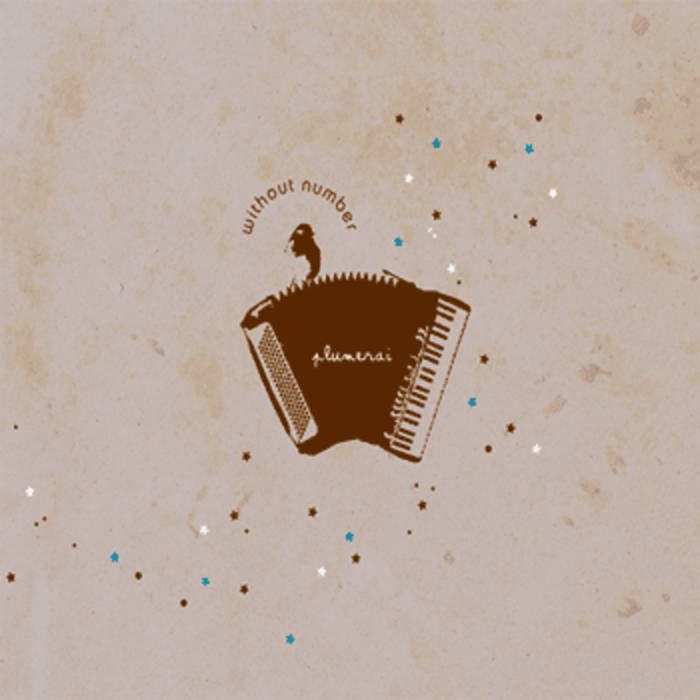Without Number by Plumerai (Review)

A little over a year ago, the Boston-based Plumerai released Res Cogitans, a 4-song EP that found the group blending some very familiar post-punk and shoegazer textures, yet doing so in a manner that was all their own — though not without a few little bumps here and there. And now they return with Without Number, a full-length that mixes several reworked tracks from Res Cogitans with brand new material, and overall, marks a very solid improvement to the band’s oeuvre.
As with Res Cogitans, there’s plenty of nuanced, darkly atmospheric pop to be found in the nine songs here, and all of it existing at that uncertain nexus between post-punk, shoegazer, goth, electronica, and gypsy folk(!). But to Plumerai’s credit, the quartet almost always manage to avoid being pigeonholed into any of those genres.
There’s an eclecticism at work here that recalls Arcade Fire. Not that Plumerai sound anything like Arcade Fire (though both groups have a penchant for building up to fiery outburtsts in their songs). But like Arcade Fire, Plumerai exhibits the same proclivity for taking seemingly disparate elements and using them to conjure up something that is both incredibly familiar and yet very much it’s own thing.
That eclecticism becomes immediately apparent by the second track. “Illuminata” also appeared on Res Cogitans, but it appears here in updated form. Even so, the vibes are still there, lending the song a noir-ish, espianoge-like air, as does the heavily affected guitar, which at times sounds like it’s channelling a spectral version of 007’s theme.
A church organ groans and creaks away on “Blues & Greens” whilst Martin Newman’s guitar wails and screams high overhead in a fine shoegazer tradition. But then there’s a soft, acoustic-led bridge and the accordion takes over, sending the track sashaying down a haunted Parisian boulevard with nary a break in stride. A similar thing occurs on “En Vale,” where the accordion more than holds its own against the crashing drums and searing guitar atmospherics, lending the dark alternative number a certain “Old World” charm.
Flourescent shards of post-punk guitar ricochet and tear through “Lovinia,” the album’s 8-minute “epic.” As the song progresses, layers of Elizabeth Ezell’s sultry vocals pile on top of each other, each one more distorted than the last. The guitar and drums pick up the pace, another organ comes drifting in, and cast off atmospherics sigh and flutter away until the entire song collapses in on itself. Meanwhile, in fine darkwave fashion, a soft synth melody lends the song an inexorable melancholy.
At times, however, the band’s eclecticism can get the better of them. The updated version of “Avernal” is a definite improvement over the Res Cogitans original, and feels even more like the group’s obvious single. But the song’s final moments, where the group steps it up double-time and lets the drums and accordion run roughshod over everything else, still feels awkward to me.
The accordion-fuelled, gypsy-inflected rocker “Sin El Lagarta” certainly sounds like it’d be a lot of fun to play live but it feels distinctly out of place on Without Number — especially since it comes after “Iris,” which contains some of the album’s most emotional and pensive track.
And while the album boasts more solid production values than Res Cogitans, the self-produced Without Number still lacks a certain amount of studio polish that would do well to heighten rather than obscure the layers of detail going on in Plumerai’s music and give it the necessary depth and richness.
But those are minor quibbles, methinks. Plumerai are clearly heading in the right direction with their sound. They’ve chosen not to sacrifice any of those sounds and styles that interest them, but they manage to incorporate all of them via a highwire genre balancing act that pays off more often than not (“Illuminata,” “Blues & Greens”). And I have yet to say anything about “Home Again,” the album’s opening track, and arguably the best thing the band has done to date, or Elizabeth Ezell’s seductive voice, which is truly the group’s secret weapon.